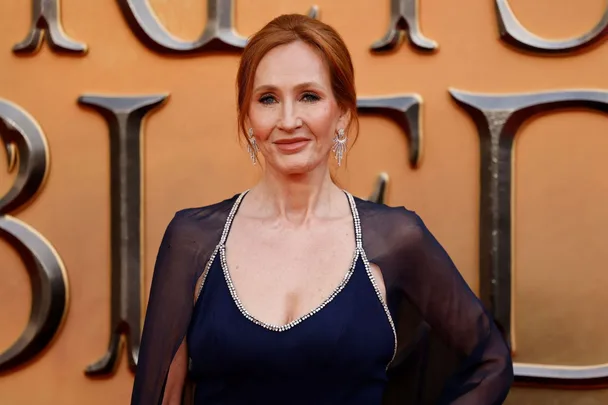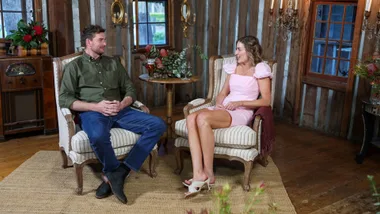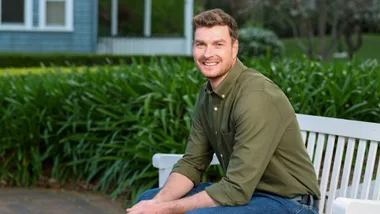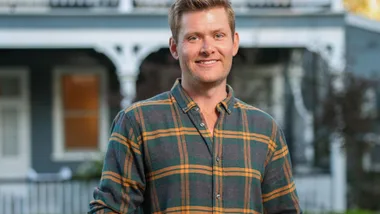JK Rowling is a name that almost everyone, regardless of age, is aware of. The author, who catapulted to international stardom after creating the iconic Harry Potter franchise, was once considered a revolutionary voice in the creative space. Nowadays, her name is seldom mentioned without some acknowledgement of the fact that her behaviour in recent years has been troublesome.
Most recently, Rowling has addressed the long-standing claims that she was purposely excluded from the Harry Potter 20th Anniversary: Return to Hogwarts.
Speaking to Graham Norton on Virgin Radio, the author denied the rumours, arguing that the reunion was more focused on the films, meaning she wasn’t obligated to be there, given her biggest contribution was through the books.
“I wasn’t [excluded], actually … I was asked to be on that. I decided that I didn’t want to do it,” she said.
“It was about the films more than the books, quite rightly. That was what the anniversary was about.”
Still, her fresh revelations have re-generated interest in the belief that she was purposely excluded, which has a lot to do with her problematic beliefs on the trans community and issues around queerbaiting and cultural appropriation.
And with news that Harry Potter is being rebooted into a TV series officially confirmed, JK Rowling’s views on trans people are once again in the spotlight.
So, if you’ve long been wondering why the once iconic is now considered controversial, keep reading.
Allegedly transphobic comments
In March 2018, Rowling first came under fire for liking a tweet which referred to trans women as ‘men in dresses.’ After the news was picked up by several major news outlet and online furore has ensued, representatives for the author claimed she suffered a a “middle-aged moment,” blaming the awkward way she sometimes holds her phone for accidentally liking the tweets.
However, this wasn’t the first (nor last) time Rowling would be caught aligning herself with transphobic ideology. A few months prior, she had liked a tweet promoting an article on Medium which was written by radical feminist Harvey Jeni.
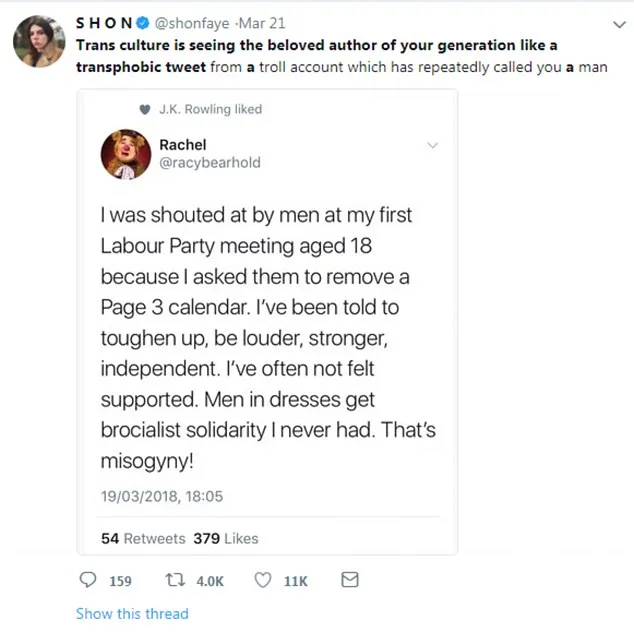
In June 2020, Rowling again faced backlash for a series of tweets which suggested she doesn’t believe trans women are women. In response to a headline referencing “people who menstruate,” Rowling wrote:
“I’m sure there used to be a word for those people. Someone help me out. Wumben? Wimpund? Woomud?” suggesting that in order to be considered a “woman” the person must menstruate.
Many were outraged by these claims, arguing that it was a blatant attack on the trans community, and an attempt to set back a movement which had been making strides toward betterment in recent history. In the wake of these comments, many celebrities (including people from her own franchise) and trans organisations were quick to call Rowling out for her problematic beliefs.
Harry Potter star Daniel Radcliffe responded on The Trevor Project website — an organization whichprovides “crisis intervention and suicide prevention services” for LGBTQIA youth.
“As someone who has been honoured to work with and continues to contribute to The Trevor Project for the last decade, and just as a human being, I feel compelled to say something at this moment,” Radcliffe said in a statement. “Transgender women are women. Any statement to the contrary erases the identity and dignity of transgender people and goes against all advice given by professional health care associations who have far more expertise on this subject matter than either Jo or I.”
On Twitter, Emma Watson also showed her support for the trans community writing:
“Trans people are who they say they are and deserve to live their lives without being constantly questioned or told they aren’t who they say they are. I and so many other people around the world see you, respect you and love you for who you are.”
Trans author Katelyn Burns explicitly called Rowling’s behavior transphobic in an essay for them writing:
“Ultimately, the answer is yes, she is transphobic, at least in the ways that so many average cisgender people can be. Because she’s J.K. Rowling, creator of the best-selling book series of all time and an idol to so many LGBTQ+ children and now adults, she gets called out for it. I think it’s fair that she receives criticism from trans people, especially given her advocacy on behalf of queer people in general, but also because she has a huge platform.”
The Gay and Lesbian Alliance Against Defamation (GLAAD) tweeted about J.K. Rowling’s comments, saying:
“JK Rowling continues to align herself with an ideology which willfully distorts facts about gender identity and people who are trans,” they said. “In 2020, there is no excuse for targeting trans people.”
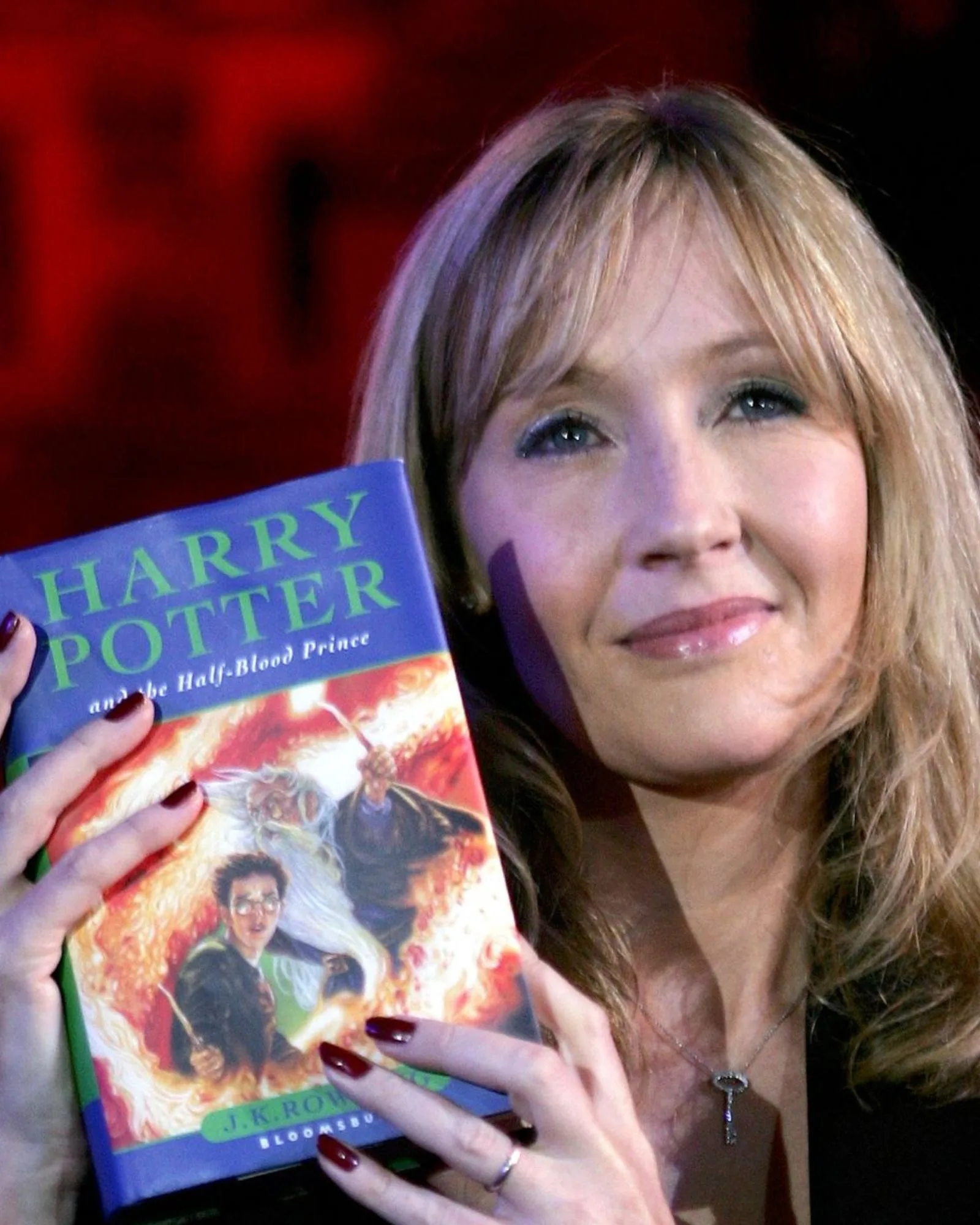
In the fallout, Rowling was labelled a TERF (trans-exclusionary radical feminist) among other things.
Rowling then wrote an essay on her website, titled TERF wars. In it, she tripled down on her beliefs that trans women are not ‘real’ women.
“I believe the majority of trans-identified people not only pose zero threat to others, but are vulnerable for all the reasons I’ve outlined,” Rowling wrote. Trans people need and deserve protection. Like women, they’re most likely to be killed by sexual partners. Trans women who work in the sex industry, particularly trans women of colour, are at particular risk. Like every other domestic abuse and sexual assault survivor I know, I feel nothing but empathy and solidarity with trans women who’ve been abused by men.”
She added, “So I want trans women to be safe. At the same time, I do not want to make natal girls and women less safe. When you throw open the doors of bathrooms and changing rooms to any man who believes or feels he’s a woman – and, as I’ve said, gender confirmation certificates may now be granted without any need for surgery or hormones – then you open the door to any and all men who wish to come inside. That is the simple truth.”
In June 2020, the author likened hormone treatment to gay conversion therapy, tweeting:
“We are watching a new kind of conversion therapy for young gay people,” referring to hormone prescriptions for young people questioning their gender identity as the “new anti-depressants”.
In August 2020, the author returned an award from the Robert F. Kennedy Human Rights organization after its president, Kerry Kennedy, publicly denounced her comments about members of the trans community and expressed his “profound disappointment that she has chosen to use her remarkable gifts to create a narrative that diminishes the identity of trans and non-binary people, undermining the validity and integrity of the entire transgender community.”
“Because of the very serious conflict of views between myself and RFKHR, I feel I have no option but to return the Ripple of Hope Award bestowed upon me last year,” Rowling wrote in a statement on her website. “I am deeply saddened that RFKHR has felt compelled to adopt this stance, but no award or honour, no matter my admiration for the person for whom it was named, means so much to me that I would forfeit the right to follow the dictates of my own conscience.”
In December 2021, the contention continued as Rowling made another anti-trans social media post prior to the release of the trailer for Fantastic Beasts: The Secrets of Dumbledore dropped. In it, she addressed a report that the Scottish police would begin to “record rapes by offenders with male genitalia as being committed by a woman if the attacker ‘identifies as a female, tweeting:
“War is Peace. Freedom is Slavery. Ignorance is Strength. The Penised Individual Who Raped You Is a Woman.”
Once again, several Twitter users fought back, wondering why Rowling continued to put her controversial viewpoints on such a public platform, with one asking, “Why is this how you want to be remembered? Why is this the hill you’ve chosen? What do you stand to gain from this?”
Accusations of queerbaiting
Many were disappointed that no queer characters existed within the Harry Potter universe, starving this community of much-needed representation in such a major franchise. Then, in 2007, Rowling claimed that Dumbledore was in fact gay, and had been in a romantic relationship with Grindelwald, despite never mentioning this in the books or films.
During a 2007 question-and-answer session at New York’s Carnegie Hall, Rowling told the crowd that she had always believed Dumbledore was gay.
“Dumbledore fell in love with Grindelwald [a bad wizard he defeated long ago], and that added to his horror when Grindelwald showed himself to be what he was,” she explained.
At the time, many fans were overjoyed, but the problematic nature of her comments weren’t addressed until several years later. After twelve years had passed, accusations of Rowling’s attempts to queerbait her fans and retcon her work resurfaced when, in an interview with the Radio Times, she claimed that the relationship between the two wizards was “incredibly intense.”.
“It was passionate, and it was a love relationship. But as happens in any relationship, gay or straight or whatever label we want to put on it, one never knows really what the other person is feeling. You can’t know, you can believe you know.
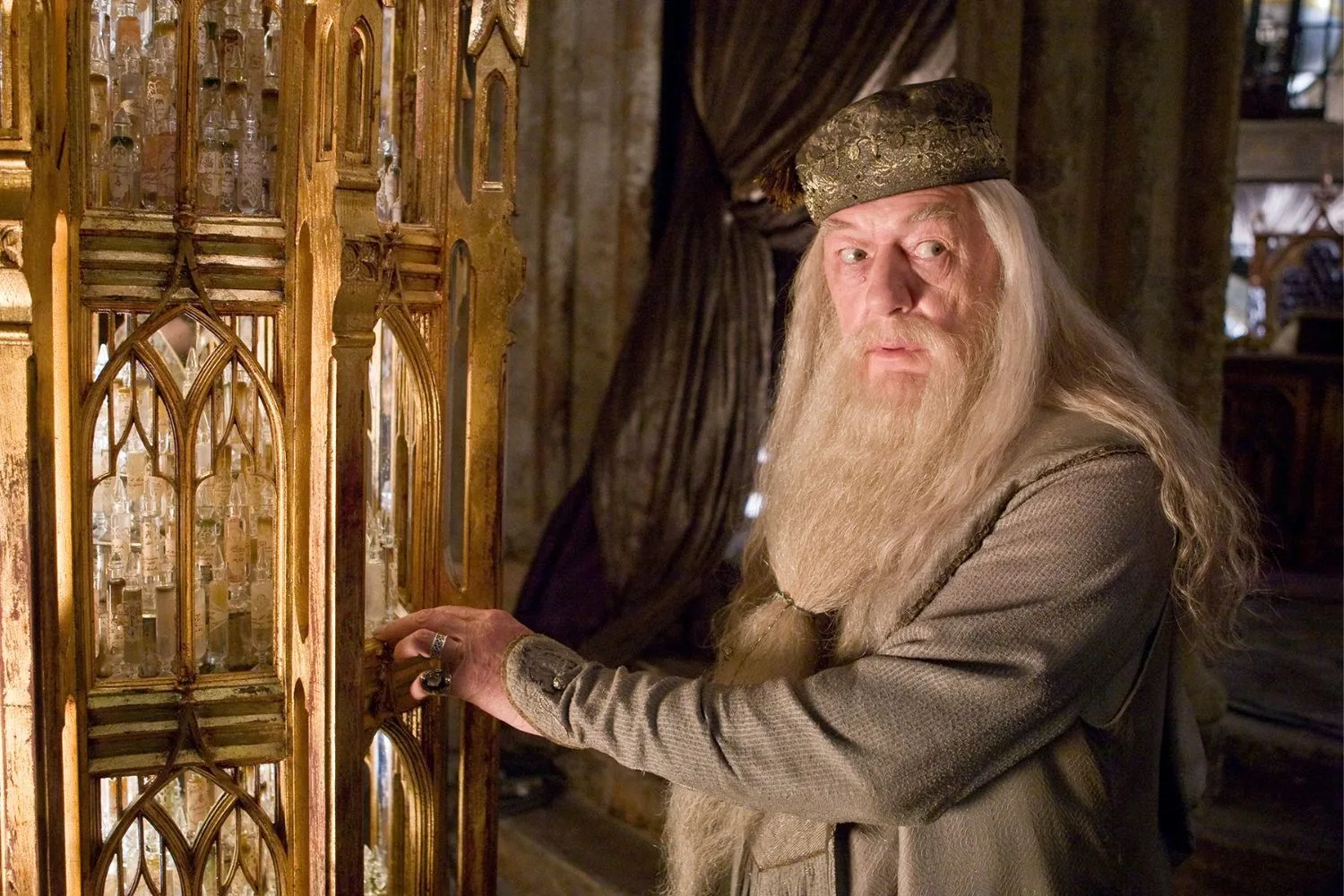
Once the revelations had been made, people were quick to point out that while Rowling had acknowledged the existence of a queer character in the franchise, she had only done so retrospectively, leaving many to question the authenticity of her statements.
“So JK Rowling has revealed Dumbledore and Grindelwald were in a sexual relationship, but still omits it from the films. Just like Dumbledore being gay. Representation only matters if it’s seen,” one tweet read.
“I would LOVE some actual gay representation in the HP universe. But JK Rowling is not giving us that. There’s a difference between Dumbledore being gay and there actually being even the slightest sign of that, and her just,, saying he’s gay,” said another.
It is worth noting that Rowling has vocalised her support for the LGBTQ+ community on several occasions, tweeting that she thought it was important for “scared gay kids who aren’t out yet to see hate speech challenged”, when people took issue with the possibility of Dumbledore being gay.
From the most prominent commentary, it seems fans felt frustrated that this part of his storyline was not explored in the books.
Claims of cultural appropriation
In 2016, Rowling published a four-part series titled, the History of Magic in North America on the Pottermore website. In it, she discussed the existence of skinwalkers, which in Navajo legend are said to be evil witches or wizards who can take on the form of animals.
Later, while responding to a related question on Twitter, she denied their existence, saying:
“in my wizarding world, there were no skinwalkers”, with the legend created by those without magic “to demonise wizards,” per The Guardian.
However, people took issue with her stance, namely with her seemingly speaking on behalf of Native People’s about their legends and historic beliefs.
Campaigner Dr Adrienne Keene replied to the author on Twitter, writing:
“It’s not ‘your’ world. It’s our (real) Native world. And skinwalker stories have context, roots, and reality … You can’t just claim and take a living tradition of a marginalised people. That’s straight up colonialism/appropriation.”
Keene addressed the issue further on her blog writing:
“There is no such thing as one ‘Native American’ anything. Even in a fictional wizarding world. Native spirituality and religions are not fantasy on the same level as wizards. These beliefs are alive, practised, and protected … we fight so hard every single day as Native peoples to be seen as contemporary, real, full, and complete human beings and to push away from the stereotypes that restrict us in stock categories of mystical-connected-to-nature-shamans or violent-savage-warriors.”
Navajo writer Brian Young tweeted that he was “broken hearted” about the new piece of writing:
“JK Rowling, my beliefs are not fantasy. If ever there was a need for diversity in YA lit it is bullsh!t like this,” said Young. “My ancestors didn’t survive colonisation so you could use our culture as a convenient prop,” he wrote.
The casting of Johnny Depp
In December 2017, Rowling was criticised for her decision to not recast Johnny Depp’s role in Fantastic Beasts, despite Amber Heard’s claims that he had physically and verbally abused her.
The author took to her website to defend her choices, writing:
“When Johnny Depp was cast as Grindelwald, I thought he’d be wonderful in the role. However, around the time of filming his cameo in the first movie, stories had appeared in the press that deeply concerned me and everyone most closely involved in the franchise.”
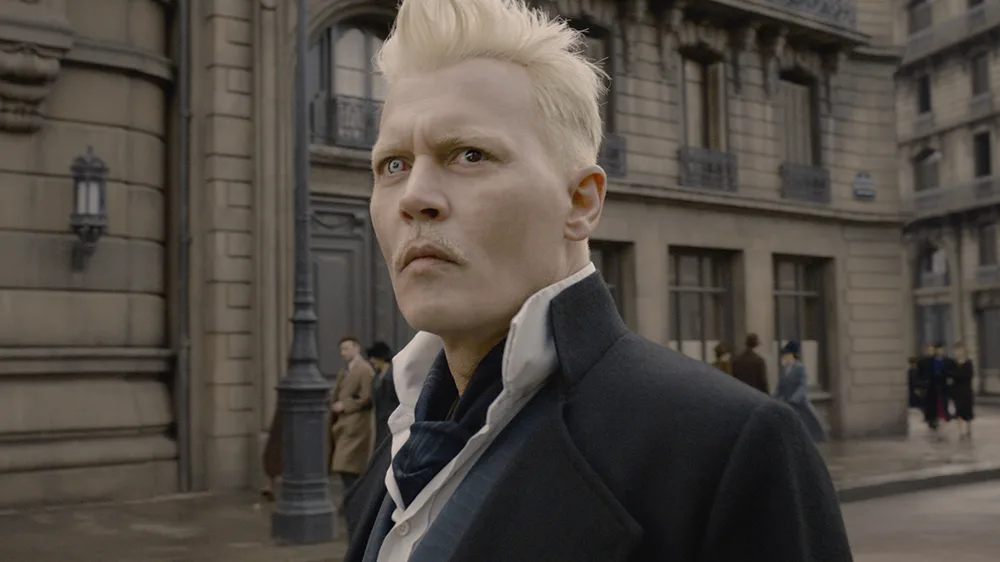
The post continued:
“However, the agreements that have been put in place to protect the privacy of two people, both of whom have expressed a desire to get on with their lives, must be respected,” she continued. “Based on our understanding of the circumstances, the filmmakers and I are not only comfortable sticking with our original casting, but genuinely happy to have Johnny playing a major character in the movies.”
The film went ahead, but was met with poor box office ratings and revenue, with matters made even worse when Heard penned an op-ed for The Washington Post which claimed she was a survivor of sexual violence. By this point, Depp had starred in yet another film associated with the Fantastic Beasts franchise.
In 2020, Depp was dropped from the franchise, but fans couldn’t see past issue with Rowling’s original stance that she was “genuinely happy” to have secured Depp’s role against the backdrop of these claims. In June 2022, Depp would go on to win his high profile defamation case against Heard for her aforementioned op-ed, but Rowling’s backlash occurred five years prior.
